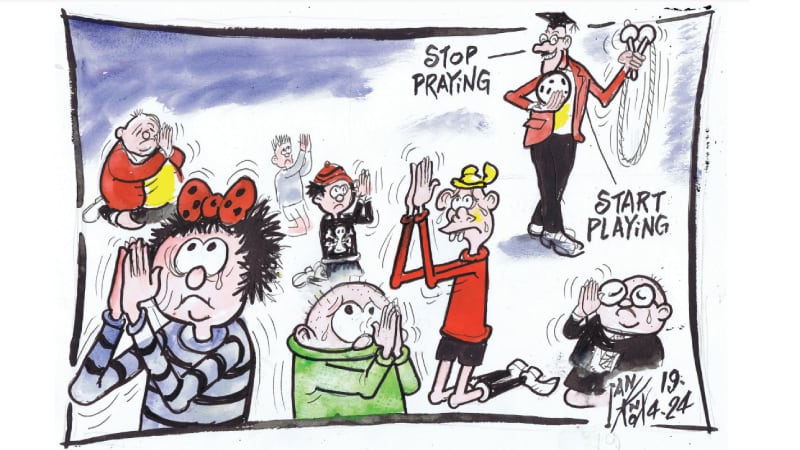WHaT is the devolution of policing for? The question arises following a report by the audit Office - which examines public bodies for value for money - into the Policing Board, which supposedly directs and oversees the PSni. every year the board produces a 'police plan'. Until now this has comprised specific targets, such as "reduce burglaries by 3 per cent" or "increase detection of domestic violence by 5 per cent". However, last year's plan did away with almost all specific targets and replaced them with aims to merely 'reduce' certain categories of crime.
The audit Office asked how the Policing Board can measure the performance of the PSni when it has nothing quantifiable to measure it against.
What the rest of us need to ask is how such a fundamental debate on policing was left to accountants and bureaucrats. Target-driven policing has been a key political debate in Britain for the past 20 years. central government began setting specific targets for the police in the 1990s as part of conservative prime minister John Major's accountability agenda. it was a patchy start, befitting a project best remembered for the cones Hotline. But the precedent had been set and Tony Blair was convinced of its potential.
From 1997 successive new labour home secretaries established more and more policing targets along with mechanisms to monitor and enforce them. Within a decade, the whole culture of British policing had changed and the public was increasingly aware of it as a mixed blessing. crime had fallen and chief constables were more answerable for their performance, yet officers complained about absurd levels of paperwork and perverse incentives to prioritise 'easy' arrests.
The controversy became a media staple, a parliamentary trope and an ideological battleground. it was seen to encapsulate
two diametric views of how policing should function. in 2008 gordon Brown tried to offload responsibility onto individual forces by letting them set their own targets alongside a national 'policing pledge' but this only created a second set of targets. in 2010 one of the first acts of conservative home secretary Theresa May was to scrap the policing pledge and tell individual forces to stop setting targets. She informed senior officers that their sole objective was simply "to cut crime".
However, target-driven policing remains a divisive topic. in February this year the president of the Superintendents' association warned that "counting beans" is so "inbred" into police management culture that it will take a generation to eradicate.
Somehow northern ireland has traversed the whole way through this debate without any political controversy or even any obvious political input.
The delay in devolving policing and justice until 2010 does not explain this because the Policing Board, which is meant to function as a sort of collective home secretary, was operational from 2001 minus only two members from Sinn Fein. Once Sinn Fein signed up and Stormont took full control there was no excuse whatsoever.
The PSni's first chief constable, Sir Hugh Orde, imported new labour's target-driven philosophy wholesale. it was not the Policing Board's idea, nor was it ever a subject of political contention. now Sir Hugh's successor Matt Baggott has blithely swung the pendulum the other way without a word of public reflection, let alone dissent, from our elected representatives.
Politicians will turn up to public meetings of the Policing Board for grandstanding grillings of the chief constable but they are less enthusiastic about the private meetings where they are supposed to help direct the chief constable. The board's strategic working group has met only three times in the past three years and did not meet at all in the two years before that, which suggests the PSni has produced entire policing plans essentially by itself.
The abhorrence of 'political policing' in northern ireland is based on the fear of individual politicians meddling in individual cases. That fear should not extend to the legitimate business of government.
The Policing Board is required by law to set the 'strategic direction' of the PSni. it is incredible that something as basic as target-led policing was reversed months ago, apparently by the PSni, without anyone in politics seeming to care.
The audit Office notes that the Policing Board has allowed the PSni to abandon targets without devising any clear strategy to replace them. instead, it appears that the PSni sets the strategy and the Policing Board rubber stamps it.
Our politicians spent years arguing over the devolution of policing powers but they have no interest in the arguments over using them. newton@irishnews.com


